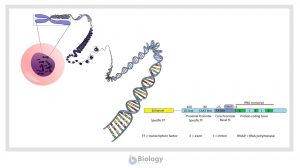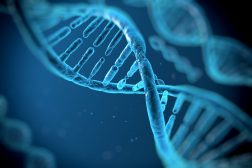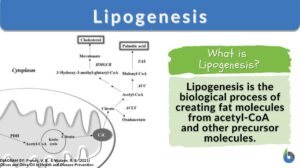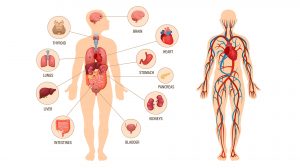Search Results for: gene regulatory protein
Gene regulatory protein
Gene regulatory protein (Science: molecular biology) Any protein that interacts with dna sequences of a gene and controls... Read More
Gene Regulation in Eukaryotes
Reviewed by: Mary Anne Clark, Ph.D. Eukaryotic Gene Structure In prokaryotes the DNA is located in the... Read More
Y chromosome
Y chromosome Definition The Y chromosome constitutes one member of the pair of sex chromosomes within an organism, a common... Read More
Glycolysis
What is Glycolysis and Why is it Important? Glycolysis is a metabolic pathway by which the 6-carbon molecule of glucose is... Read More
Regulatory gene
Definition noun, plural: regulatory genes A gene that is involved in the production of a substance that controls or... Read More
Polymorphism
Polymorphism Definition The occurrence of two or more different forms or morphs in the population of a species is referred... Read More
Nucleosome
Nucleosome Definition Every organism is made of deoxyribonucleic acid, also known as DNA. DNA is made up of numerous... Read More
Gene Action – Operon Hypothesis
Reviewed by: Mary Anne Clark, Ph.D. Some genes are switched on or off depending on environmental conditions. The... Read More
Homeostasis
Homeostasis is the tendency not to stray from the range of favorable or ideal internal conditions. Such conditions must be... Read More
Messenger ribonucleic acid
Definition noun plural: messenger ribonucleic acids mes•sen•ger ri•bo•nu•cle•ic ac•id, ˈmɛ.sɪn.dʒəɹ... Read More
Genetic Control – On and Off Genes
Reviewed by: Mary Anne Clark, Ph.D. This lesson looks at the various factors involved that affect growth and... Read More
Euchromatin
Definition noun A slightly packed or partially condensed form of chromatin that contains structural genes and is usually... Read More
Nuclear body
Definition noun plural: nuclear bodies nu·cle·ar bod‧y, ˈnjuː.kli.ər ˈbɒdi Any of the prominent non-membraned,... Read More
Lipogenesis
Lipogenesis Definition Lipogenesis is the process of producing lipid or fat to store biochemical energy for later metabolic... Read More
Sarcolemma
Sarcolemma Definition What is the sarcolemma? It is the thin, transparent, extensible plasma membrane of the muscle cell.... Read More
Centrosome
Centrosome Definition What is a centrosome? The centrosome is considered to be the main microtubule-organizing... Read More
Nucleoplasm
Definition noun plural: nucleoplasm nu·cle·o·plasm, ˈnjuːklɪəˌplæzəm (cell biology) The protoplasm of the... Read More
The Human Physiology
Physiology is the study of how living organisms function. Thus, human physiology deals specifically with the physiological... Read More
Constitutive mutant
Definition noun A mutant organism that continuously produces a protein (and therefore may be produced in excess) due to a... Read More
Krebs cycle
Krebs cycle, also known as the citric acid cycle or tricarboxylic acid (TCA) cycle, is a fundamental metabolic pathway that... Read More












![Biology n., [baɪˈɑlədʒi] Definition: scientific study of life](https://www.biologyonline.com/wp-content/uploads/2021/12/biology-definition-and-branches-of-biology-300x168.jpg)








